[Most Recent Entries] [Calendar View] [Friends View]
Tuesday, April 2nd, 2013
| Time | Event |
| 5:21a | Game of Thrones returns with critical mass of politicking Funny thing about recaps: Some of the early feedback I got on the handful I did last season suggested people wanted less blow-by-blow, more macroanalysis. But I wonder how well that works for Game of Thrones: Friends, I've read all the books and watched every season so far twice, and I'd be lying if I said I didn't reach for a wiki a few times to make sure I had everything and everyone straight as we begin the third season. I'm often afraid the show is going to shake less-obsessive Game of Thrones fans like a beauty in a bear pit, since we're reaching a critical mass of characters and politicking. Yet this is the season readers have anticipated most of all, and if the television adaptation has had one major strength so far it's its ability to abstract the muddy stuff and highlight over-arching themes. I'll be your guide this season, and I'll try to focus on some of those themes, while seeing what I can do to help everyone keep their names, faces and facts straight as we return to the world of Westeros and beyond after a long, long winter. I think the premiere deserves some extra details to make sure everyone knows exactly what's going on; if you just want some analysis, scroll to the end. The season three premiere picks up quite literally where we left off: With unlucky Night's Watchman Samwell Tarly struggling through the snow as the blue-eyed, undead Others -- and the legion of Wights they seem able to reanimate -- begin approaching the Wall from the mysterious, inhospitable lands beyond it. We've seen glimpses of this unknowable dread before in the series, but here's the point where we realize a legion of undead is going to be an issue for Westeros. An under-funded Night's Watch staffed mostly by ex-convicts and aging retirees is going to have a hard time holding these guys back -- and a harder time convincing anyone in the Seven Kingdoms to help out, given that their attention and their funds are tied up in their own wars for the throne. We presume it'll be harder without Jon Snow, who's been dispatched to infiltrate the society of the Free Folk, who live beyond the wall so they can avoid the oppression and war that comes with living under a traditional king. In this episode, we meet Mance Rayder, leader of the free folk and former crow of the Night's Watch himself. Mance is unimpressed when Jon awkwardly parrots rhetoric about freedom, but appreciates his more-truthful story about how the Watch's Lord Commander, Jeor "Old Bear" Mormont, ignored the sacrifice of male infants at Craster's Keep last season. Mance also probably appreciates the genuine romantic sparks he senses between Snow (who is adorably lateblooming about women) and Ygritte, the firehaired freewoman who's been his biggest advocate here. Back at King's Landing, we join Tyrion, who's recovered from his war wound -- less so from the complete untangling his sister Cersei's done of his attempts to restore some degree of power and balance in Joffrey's mad kingdom. We find him examining a mirror and noticing his scar makes him even uglier than he once was -- a hallmark of this series is taking people in bad situations and making them worse. Not that Peter Dinklage is actually ugly, mind. In the books, Tyrion actually loses part of his nose; the more restrained scarring he sustains here shows a healthy appreciation for his charismatic face. He will probably always be the best thing on this show, and HBO's April Fool's prank about him being replaced was momentarily sick-making, even knowing what day today is. Lannister patriarch Tywin has come to town, after arriving at the last minute to save the city from certain ruin. Tywin brought me my favorite moment of last season: Cersei, about to take her son's life as she trembles with wine and brutal terror, leaping to her feet with all the delight and relief of a young girl when it's her father, not the invaders, who strides into the throne room to reveal he's saved her. There's an incredible dichotomy in Tywin Lannister, who as a character is getting one of the best and most luminous treatments of anyone on the show -- he's ruthless, yet we can admire him; we see why his children both hate and long for him. His scenes with Arya Stark (posing as his cupbearer) last season were some of the show's best. Not that Tyrion can expect any similar sense of salvation from his father, who never conceals his open loathing for the son he views as twisted and deformed, and whom he will forever blame for the death of his wife in childbirth. Tywin is an excellent general but no kind of parent, and his attitude to strategy and efficiency strains and overhangs his dysfunctional, love-starved children. Cersei's heard Tyrion requested a meeting with their dad, and comes to find out what he wants. "He's my father," Tyrion replies."Do I need to want something?" That's some elegant dark humor, there -- but there's also the leaden ache when we hear Tyrion describe to his sister how he lay with his face split in half, yet no visit from his only parent. Tyrion may have had all his power taken away, but Cersei fears him anyway: She says she's afraid he'll tell lies, but it's plain it's the truth she's afraid of her father knowing: The nightmarish way she's let her son Joffrey trample the kingdom and run the family into the corner. Oh, yeah, and the whole bit where Cersei's kids are her brother's kids. That's kind of the big one. All Tyrion wants, it seems, is stewardship of the family home back in Casterly Rock (his brother Jaime, having joined the Kingsguard, forfeits the right to hold lands). But even though Tyrion was the only Lannister kid to show any bravery during the fight at King's Landing, Tywin's venomous at the suggestion: In his eyes, his youngest son is the only thing he's ever done imperfectly. Note dad's extreme offense at Tyrion's whoring; Tywin's own father apparently shamed the family by taking in a courtesan who indulged herself in the family's riches, and he can't abide the idea that his own son has brought a whore to King's Landing. Recall Tyrion confiding in Bronn and Shae about the nasty business his father put him through when he briefly married a whore as a youth. We see quite plainly how Tyrion came to be how he is: The cleverest of the children raised in the cunning Lannister mode, yet the least-loved. His closest ally right now is "upjumped cutthroat" Bronn, who's just asked for a pay raise for his "friendship." Davos Seaworth has survived the wreckage of Stannis Baratheon's fleet during the Blackwater battle by clinging to a rock in the middle of the sea. When rescuers arrive, they demand to know what king he's served. The wrong answer, here, could have ended his life, and you see on his face how dearly he knows this. Yet Seaworth would die loyal, declaring himself for Stannis, the "one true king." Seaworth is arguably one of the most moral and loyal characters in the entire narrative, yet Stannis is clearly twisted 'round the finger of the Red Woman, the sorceress Melisandre, and her fanatical worship of the Lord of Light. The pirate Sallador Saan, who contributed 30 ships to Stannis' war effort, believes Stannis' cause is lost and is bailing on Stannis, his ominous sorceress and her apparent penchant for burning nonbelievers. Yet after everything Davos has sacrificed, Stannis, himself an obsessive, fanatical purist whose own late brother Renly told him no one wanted for king, sends his most loyal man to the dungeons for speaking agains the sorceress. We see how manipulative the priestess is when she implies she could have prevented deaths, including that of Davos' own son, if only Davos had not convinced Stannis to leave Melisandre behind during the Blackwater battle. As for the Starks, they lost their Winterfell home primarily due to former ally Theon Greyjoy's prideful muddling, but it's clear Robb Stark's army blames the Lannisters, ignoring some of the subtleties of war in favor of a simplified -- and deeply personal -- vendetta against the family they hold responsible for the death of Robb's father Ned. In Robb's mind, the conflict is even more dangerously oversimplified: His main enemy is Jaime Lannister, and therefore the fall of Winterfell (and the slaughter of Northmen they discover here at Harrenhal) is the fault of his own mother, who set Jaime "free" (into the custody of Brienne of Tarth to be brought home, really) in a desperate exchange for her daughters. Ros, the prostitute who ended up as Peter "Littlefinger" Baelish's business partner, tries to bond with Shae over having come up in the world; Shae, still successfully posing as Sansa's handmaid, evades the idea that they may have shared experience.The woman never says anything about herself, and wholly rejects Sansa's attempt to play imagination games with her. Littlefinger's attention to Sansa is slightly creepy, given the degree to which we know that he once desired her mother (and the degree to which we know he can't be trusted), but Sansa's finally brave enough to tell him to help her leave King's Landing. The charismatic Tyrells have now joined the Lannisters via beautiful Margaery's wedding to Joffrey. But unlike the cowardly, squeamish and violent boy-king, she has no problem entering the poverty-stricken Flea Bottom to give gifts and food to the children -- and her willing vulnerability is an incredible foil to steely Cersei. The look on Cersei's face when Joff, who himself seems as interested in pleasing Margaery as anyone, suggests his mother is getting older is priceless. Of course, no one in this show is simple, and viewing Margaery as simply a naively-charitable heroine would be a mistake. When she urges the head of the orphanage she visits to come to her if they need anything, her emphasis of "directly to me" could be viewed as a potential allusion to her motives. It'll be interesting, actually, to see how the show treats Margaery's objectives, since the books keep them obscured, and never let us get to know her well. Finally, we rejoin Daenerys, who has reclaimed her dragons and escaped the incredibly inhospitable Qarth with a ship and the riches she's won from her enemies. Next, she needs an army, so she her right-hand man, Jorah Mormont, are headed to Astapor to check out some slave soldiers for sale. We see how the silver queen aches for her Dothraki, who are suffering sickness and terror for her, having never been on the "poison water" in the history of their tribes. We see how firmly the idea of slavery at all disgusts her; she'll be able to get a terrifying army bred from childhood for war, but given that each of them has to murder a baby in their training to ensure they have no "weakness," will she compromise? Does she have a choice? Amid all the conniving and mistake-making of the Westerosi throne contenders, Daenerys' white-haloed morality is supposed to make us want her most of all for the throne. I wonder how people of extreme moral character manage to fare in this series? For some analysis, I want to talk about Daenerys, because her story arc is obviously going to be the most challenging for the show's writers in the season ahead. Early in the story, hers is one of the most interesting narratives: She begins a terrified girl, estranged from her royal background and at the mercy of her vicious brother Viserys. She's managed to dodge the Targaryen family madness; he hasn't. While he makes a desperate, irrational bid for power, she simply dreams of having her own home. When she's sold as an adolescent bride to a terrifying, wild horselord, we feel for her, and when she falls in love and learns to claim some power within a society completely foreign to her, we root for her. By the time Khal Drogo dies and Dany takes leadership of the Khalasar, we believe she can be a contender for the Iron Throne in her own right. But in the books, she often feels like an off-note from the time she comes into power onward: it's hard to forget she is written in lavish physical detail by a nerdy old guy who likes describing her breasts or her various states of arousal. There is a certain theft of dignity that happens to Daenerys that doesn't happen to Cersei, Arya, Sansa or Catelyn; Daenerys is a very young woman learning to become a moral authority, and this episode presents the way her desire to right impossibly large and deeply-ingrained wrongs such as global poverty or slavery in cultures that have a certain peace with slavery will conflict with her ultimate goal of queendom. Emilia Clarke as Daenerys often wears an expression simultaneously noble and soft, the kind you expect to see etched on a royal seal, and the way the camera lavishes on her -- a small, beautiful but insistent figure surrounded always by eerie predators -- is currently maintaing a delicate balance between the ways we're meant to see her as simultaneously righteous and powerless. Readers who are Dany fans seem to often feel like they don't know what the books will do with her; it's interesting to see what the show will do with her (I've read that Clarke begged George R.R. Martin to know; if I were her, I'd be the member of the cast begging the hardest, too). As the premiere closes, we see longtime Kingsguard commander Ser Barristan Selmy save Daenerys from a trap that exploited her own faith in people (believing a child offering her a ball was simply that, and not a warlock offering her a scorpion). Recall how Selmy was dismissed by Joffrey for being too aged? Now, Dany has a new champion -- and look how anxious this seems to make Mormont. Loyalty is really the overarching theme of this episode; its title, Valar Dohaeris, is High Valyrian for "all men must serve" (versus the title of the Season 2 finale, Valar Morghulis, or "all men must die"). How important is allegiance, Jon Snow is wondering as he tries to prove himself to Mance, and what happens when you misplace your loyalty -- or in the case of Robb, or Tywin, or Cersei, or Davos, your blame? This season's set to be disaster porn -- book fans are especially excited about season 3 because they cannot wait to see terrible things happen to important characters. Saying so is hardly a spoiler; it's Game of Thrones! If you want to see empowering narratives, watch Girls... er, wait. I got nothin'. |
| 5:30a | How to Fake a Moon Landing: Exposing the Myths of Science Denial
Is hydro-fracking safe? Is climate change real? Did the moon landing actually happen? How about evolution: fact or fiction? Author-illustrator Darryl Cunningham looks at these and other hot-button science topics and presents a fact-based, visual assessment of current thinking and research on eight different issues everybody’s arguing about. His lively storytelling approach incorporates comics, photographs, and diagrams to create substantive but easily accessible reportage. Cunningham’s distinctive illustrative style shows how information is manipulated by all sides; his easy-to-follow narratives allow readers to draw their own fact-based conclusions. A graphic milestone of investigative journalism!
|
| 5:38a | Adafruit debuts "Circuit Playground" -- a kids' puppet show about electronics I've written before about Adafruit's "Circuit Playground," a kids' puppet show about electronics (with accompanying coloring book and plushies!). The first episode, "A is for Ampere," just went live and it's a smashing history and explanation of the ampere and the electron. Circuit Playground “A is for Ampere” – Episode 1 |
| 6:00a | Brain Rot: Hip Hop Family Tree, Afrika Bambaataa Planet Rock Read the rest of the Hip Hop Family Tree comics! |
| 6:30a | Gweek 087: The Art of Doing I had an enlightening conversation with Josh Gosfield and Camille Sweeney, authors of a great new book called The Art of Doing: How Superachievers Do What They Do and How They Do It So Well. Josh and Camille interviewed 36 notable people -- artists, entrepreneurs, actors, athletes -- asking them their secrets of success. Joining me on the episode was Gweek's frequent co-host, Joshua Glenn, co-editor of Unbored: The Essential Field Guide to Serious Fun and HiLowBrow.
In this episode:
|
| 7:44a | Dutch reality TV show offers one-way trip to Mars A television company in Holland is seeking volunteers for a one-way trip to Mars. The good news is that the sort of people who would volunteer to be on a reality TV show will be on a one-way trip to Mars. Mars One was founded in 2010 by 36-year-old engineer Bas Lansdorp, who told ABC News he has a road map and financing plan for the project, and that "the mission is perfectly feasible."
In order to raise the estimated $6 billion required to fund such an ambitious project, Lansdorp says that it hopes to capitalize on vast public interest in a manned mission to Mars by selling global broadcasting rights to the mission. Seems legit.
From the company website:
Mars One is a not-for-profit organization that will take humanity to Mars in 2023, to establish the foundation of a permanent settlement from which we will prosper, learn, and grow. Before the first crew lands, Mars One will have established a habitable, sustainable settlement designed to receive astronauts every two years. To accomplish this, Mars One has developed a precise, realistic plan based entirely upon existing technologies. It is both economically and logistically feasible, in motion through the integration of existing suppliers and experts in space exploration. We invite you to participate in this journey, by sharing our vision with your friends, by supporting our effort and, perhaps, by becoming the next Mars astronaut yourself.More: Reuters TV, ABC News, and here's the company website for "Mars One." |
| 8:05a | Caldera: dream-like animated short about mental illness Evan Viera's lovely short "Caldera" explores the ambiguous reality inhabited by people experiencing psychosis, through the tale of a young girl suffering from mental illness. Viera, who also composed the film's lovely ambient electronic score, explains:
CALDERA is inspired by my father's struggle with schizoaffective disorder. In states of delusion, my father has danced on the rings of Saturn, spoken with angels, and fled from his demons. He has lived both a fantastical and haunting life, but one that's invisible to the most of us. In our differing understanding of reality, we blindly mandate his medication, assimilate him to our marginalizing culture, and entirely misinterpret him for all he is worth. CALDERA aims to not only venerate my father, but all brilliant minds forged in the haunted depths of psychosis.Full credits here. |
| 8:17a | How "workarounds" cause people with dyslexia to be more creative "Mounting evidence shows that many people with dyslexia are highly creative, out-of-the-box thinkers, and neuroimaging studies demonstrate that their brains really do think differently." An interesting piece in the Wall Street Journal on adaptive responses to a "neurodifference" that affects as many as one in five Americans. |
| 8:44a | Thailand: 13% of endangered tortoise species discovered in smuggler's bag at airport Indian Star Tortoises. Photo: P.Tansom/TRAFFIC Authorities in Thailand made two big seizures of attempted tortoise smuggling at an airport this week. Hundreds of threatened tortoises were discovered, and they are among the rarest in the world. Two smugglers were apprehended. From TRAFFIC, the wildlife trade monitoring network: On Friday, authorities arrested a 38-year-old Thai man as he was attempting to collect a bag containing tortoises from Madagascar, from a luggage carousel, at the airport. The bag was registered to a 25-year-old woman who had flown from Madagascar to Bangkok via Nairobi the same day. So, the smugglers were attempting to smuggle 13.5% of the entire world population of Ploughshare Tortoises. Both the Thai man and the Malagasy woman were arrested, and the man had been arrested earlier in 2013 on another wildlife smuggling charge. Photo: P.Tansom/TRAFFIC The incident happened just after the conclusion of the Conference of the Parties of the Convention on International Trade in Endangered Species of Wild Fauna and Flora (CITES), in which delegates from Thailand and Madagascar "discussed plans to share intelligence and co-operate in other ways to curb the smuggling of wildlife from Madagascar to Thailand." More at the TRAFFIC website. |
| 8:47a | HOWTO produce a 3D printed skeleton from a CT scan of a living animal
I have a 3D print of my femur in bronze and stainless steel, courtesy of my wife and her raid on my MRIs. Sounds like you get an even better shapefile from a CT scan, if you don't mind receiving the radiation equivalent of 800 X-rays. How to 3-D Print the Skeleton of a Living Animal [Wired/Greg Miller] |
| 9:07a | Cross My Heart Hope to Die: eclectic, cinematic multimedia beats 
A self-titled EP from Cross My Heart Hope To Die is out today on Alpha Pup Records. I've been grooving on these tracks for a few weeks now, and the moody, cinematic, urban vibe grows on me more each time I listen. The music project is also an interactive art collective, which has been putting up sonic street installations over the past year or so in various cities around the world. Below, "Wildside," from the four-song EP (Amazon, iTunes).
Unsuspecting pedestrians around the world have been enjoying and participating in this project - sometimes without even knowing it. Inconspicuous art installations and street music boxes have been hidden in such cities as Los Angeles, New York, Tokyo, Rome, Belfast, Prague, and Vienna. CMHHTD wants to manipulate the way people find music; to bring back the thrill of discovery.
Boing Boing pal Sean Bonner is part of the collective, which also includes producers DJ Muggs (founding member of Cypress Hill and producer of Ice Cube’s “Check Yo Self” and House of Pain’s “Jump Around”) and Andrew Kline (founding member and main songwriter of the Los Angeles based hardcore band, Strife). Ethereal songstress Brevi "elevates the tracks with sexy and hauntingly beautiful vocals." She has previously appeared on tracks from 50 Cent, Wiz Khalifa, Xzibit, Raekwon from the Wu Tang Clan, and more. Here's a Pitchfork review. And a groovy footnote: their music is released under a CC license. |
| 10:55a | Douglas Rushkoff: Present Shock, the Boing Boing interview Over twenty years, ten books, and multiple PBS documentaries bOING bOING pal and media theorist Douglas Rushkoff has proven himself to be a provocative pattern seeker with a mastery at connecting the dots between popular culture, technology, and the complex underpinnings of modern society. Inspired by the likes of Timothy Leary, Marshall McLuhan, Robert Anton Wilson, and Neil Postman, Doug's message has always been about the empowerment of the individual. He is a quintessential happy mutant. Whether he's writing about social contagions, video games, advertising, religion, or the Occupy Movement, his focus is on how narrative can be used by Control to coerce, and as a tool of resistance. William S. Burroughs once wrote, "Is Control controlled by its need to control? Answer: yes." And therein lies the secret to undermining it. Doug's new book is Present Shock, about how everything is happening now. Right now. As Doug said, "It is kind of panicked, untethered sensation that comes with living a real-time, always-on existence without past or a future, origins or goals. Just the present." BB: The book's title is a riff on Alvin Toffler's classic 1970 book "Future Shock." He used that phrase to describe the feeling of "too much change in too short a period of time." What is present shock? Rushkoff: Present Shock is what happens when the future Toffler described finally arrives. It's the initial human reaction to living in a world where everything is happening now… In one sense it's the first response to a digital media environment - or, more specifically, the digital temporal environment. While analog time (itself just one kind of representation) had a continuous, almost narrative quality as the second hand swept through one minute and into the next, digital time just sits there poised at 3:23, 3:24. We spent centuries thinking of hours and seconds as portions of the day. But a digital second is less a part of greater minute, and more an absolute duration, hanging there like the number flap on an old digital clock. In the other, bigger sense, though, it's about reaching the end of the millennium. We spent the latter part of the 20th Century leaning towards the year 2000, almost obsessed with the future, the dot com boom, the long boom and all that. It was a century of movements with grand goals, wars to end wars, and relentless expansionism. Then we arrived at the 21st, and it was as if we had arrived. People stopped thinking about what their investments might be worth in the future, band began to consider what they were worth right now. And the market crashed. We came to realize the expansion was over - at least in the colonialist way we understood it. Obama told us we are the change we had been waiting for. So between those two related shifts, we arrived in a present. Only instead of seizing this new "now," we tend to get disoriented. Instead of using digital technology to time shift our schedules to our real preferences, we respond to the insistent pings of our devices as if we were 911 operators or air traffic controllers. We chase the moment they offer, and forget that we are the ones in real time, and the devices (and the corporations behind them) are chasing us. But "present shock" is also as simple as the botox addicts on Real Housewives of Orange County, desperate to lock in the moment when they were 29 years old. All succeed in doing is paralyzing their faces in a poor imitation of that moment, and making themselves unavailable to the social moment in which they are living. They can't register emotions on their faces, which is why they never believe one another. They are "overwinding" the present moment. The book is broken up into five "symptoms" of present shock? Can you give an example of each? Narrative collapse is what happens when we no longer have time to tell a traditional story. Whether it's remote controls or DVRS that allow us to break the trance of a story, or simply our inability to grasp a story when we no longer have linear time in which to tell it. In one way it's great thing, because it disables the kinds of stories that were used to pull us out of the moment, and fix our eyes on some future goal. We can't be fooled into destructive, ends-justify-the-means battles because we don't do things for the ends, anymore. It wreaks havoc on brand mythologies and origin stories, alike. At first, the response was television like The Simpsons and MST3k, which seemed less about whatever story was being told, and more about the individual associations we make along the way, comparing a scene with some other moment in media. The satisfaction wasn't getting to the end, but making all those connections. Then we see video games as an even more presentist response, giving the user a real-time experience of making choices instead of watching some character move through a story that already happened. We get "infinite" games, where we play not to win and end the play, but in order to keep the play going. Digiphrenia is a digitally induced mental confusion. I've never had a problem with information overload. Where I think we run into trouble with digital technology is its ability to make copies. Human beings don't copy well - but I've got i don't know how many "instances" of myself functioning independently at any moment. My Twitter account, my email inbox, my Facebook profile (well, I surrendered that one), all act on my behalf, sometimes when I'm not even there. Especially when Zuckerberg decides to market something using my likeness, or that of someone who has chosen to "like" me. The promise of digital technology was that it would give us more authority over our time. Remember those early conversations on the Well? We got to sound smarter than we were in real life, because we had all the time in the world to respond. They were asynchronous conversations, fully consonant with the asynchronous character of digital technology. When we strap this stuff to our bodies and respond to each vibration, we are turning them into something very different. Digiphrenia is also simply mistaking digital clock time, and its seemingly generic quality, to the very contoured and specific qualities of human time. Biologically, psychologically, and culturally, we are guided by all sorts of cycles that make one time different from another. Emerging research (cited in the book) seems to indicate that we are collectively biased toward a different neurotransmitter during each week of the lunar cycle. No, it's not new age weirdness (though I bet most aboriginal cultures knew this - the early Jews certainly did). Digiphrenia is a disconnection and devaluing of these underlying rhythms for the illusion of chronologically equivalent pulses. We lose our coherence, because we're no longer in synch with our most basic biological clocks. Overwinding is trying to shove really big time scales into tiny little presentist moments. When I read Stewart Brand's The Long Now I was inspired by the idea of thinking of things in 10,000 year spans. But for me, that experience felt less like a long now than a short forever. It was just too big a scale, too big a sense of responsibility to throw onto each moment. At the very least, it was a hard argument to make in a presentist culture with no sense of long-term goals and impacts. Overwinding is the effort to get long-term effects out of immediate actions. It's happening most clearly on the stock market, where people want to make money not by investing, but on the trade itself. They buy Facebook in the morning of the IPO and are disappointed when they haven't made a profit fifteen minutes later. It's the ultra-fast trading algorithms that make money by trading in your future. Fractalnoia is when we try to make sense of things in the present moment, rather than having a cause-and-effect chain of events through which to understand how something happened. It's making sense of a static picture. Like CSI. Drawing connections and making equivalencies between things that are essentially unconnected and definitely not equivalent. I took the term from fractals, of course, because so many of us seem to make the error of mistaking self-similarity for being exactly the same. We need to develop pattern recognition, which is a softer and less exact skill than finding true congruence. Fractalnoia is also the panic at trying to parse feedback. Our feedback cycles have gotten so tight in a presentist society that it's really hard to parse causes from effects. All we hear is the screech of the microphone in the speaker. Finally, Apocalypto is our intolerance for living in an interminable present. We are so used to beginnings and endings, that many of us would rather imagine a zombie apocalypse or human-obsolescing singularity than try to carry on sustainably into the future. When you started writing this book, you told me you thought it was your most important one. I've never heard you say that before. Do you still feel that way now that it's done? Why? In some ways I feel like it's my last book. (Don't applaud - that's not polite.) It certainly brings me to the end of the journey I began with Cyberia in 1994 (a book that got canceled by its commissioning publisher because they thought the net would be "over" by the original 1993 publication date). I wrote that "time was speeding up" and that we were "on the event horizon of the strange attractor." It was heady and optimistic, but it was also Mondo and Boing Boing. It didn't seem to me I was writing about something that was coming, but something that had arrived. This was it. The tools were in our cyberpunk hands, and we could create what we wanted, exchange it directly, build a peer-to-peer culture and economy, and liberate ourselves from centuries of time-is-money industrial corporatism. The digital age seemed to be the great release from the yuppie nightmare, and the ultimate generator of slack. But then Wired got ahold of it, and all of sudden the digital age wasn't something with us, to celebrate; it was something on the horizon. Louis Rosetto wrote in the editorial to the first issue of Wired that we were facing a "Bengali Typhoon." Like it was this big wave that was about to happen and you better watch out. And you better read this magazine (and hire some digitally inspired futurists) to do some scenario planning so you don't' get wiped out. And from then, digitally seemed less about transcending the industrial age economy, and more about preserving it. Internet companies were going to save the Nasdaq. And, sure enough, we used digital technology largely to make us into better consumers. And our applications - the way so many of them take our time instead of free it, make us work round the clock instead of when we want, or convince us that we have to tend to them night and day - they exacerbate the worst sorts of time-is-money principles of industrialism. So when I started this book, I realized I had (at least for me) come upon the essence of our relative power in this situation: Time. We are witnessing yet another iteration of the age old interplay between Chronos, or clock time, and Kairos, which really means timing. Timing is the human part - the indefinable aspect of time. A kind of readiness. What's the best time to tell dad you crashed the car? 5:02? No, that's chronos. It's not a time on the clock. It's after he's had his drink but before he's opened the bills. Kairos. And all my work has really been about this - from Playing the Future, which was about the breakdown of cause and effect narrative, to Nothing Sacred, which was about Jewish continuity as less of a thread to some historical past and more about the willingness to engage with fresh eyes today. So this book is less about a particular thing, and more about the whole thing. For years, you and I joked that you were like an "optimism engine," always able to find the brighter side of any negative situation. I'm not sure if you've become less optimistic, but you are certainly less positive about the present. Why? Well, I'm still really hopeful. And I play the optimism game to this day - where I take an awful phenomenon and try to recast it in a positive frame. It's a bit harder now that I have a kid and I think about the world she'll inherit. But I'm still hopeful. The only negative side of Present Shock is that we're mostly in shock rather than true presentism. But that's to be expected because this is brand new, and we have a good five hundred years to go before presentism becomes something else. These things last millennia. And there are some great example in the book of people and groups who are embracing presentist, steady-state models. From Occupy to time dollars, Makerbots to spiritually inspired social activism, we see the emergence of some terrifically, post-industrial post-narrative approaches to life. We are finally ready to look at less climactic, more sustainable solutions to the world's problems. Contending with a society biased toward the present is just going to take some time. One of the most soundbitey bits in the book is the statement "I am much less concerned with whatever it is technology may be doing to people than what people are choosing to do to one another through technology.” What does that mean? I accept that technology has biases. Guns don't kill people, but they are much more biased toward killing people than pillows. Digital technology has biases, too, but I don't think they are biased toward taking our time, fracturing our awareness, and making us anxious. I think they are more biased toward doing the opposite. The thing that gets me anxious is not the email piling up in the inbox - it's the expectations of the people on the other end of those emails. It's the expectation that I'm supposed to respond in seconds or minutes. It's the boss who thinks a computer is a good enough reason to watch every one of his worker's keystrokes. But you see, the only reason the boss thinks that is because he's back in the industrial age mentality of believing that he has bought your time. Digital technology should be giving the worker more choice of how he uses his time, not the boss more authority over that time. Since at least 1998, and most recently in your Good post, you've ranted that "futurists suck." As you know, I'm a card-carrying futurist myself with Institute for the Future, an organization that you've expressed a desire to associate with more closely. So I need to ask, how do you define "futurist"? Well, "why futurists suck" was a bad headline on an otherwise heartfelt little piece. I've gone and apologized for it on my blog. It's no excuse - particularly for me - but I was in a bit of present shock, myself, when I was going back and forth about it (typing on a smart phone during an NPR station break on publication day, correcting for a snafu that had delayed the piece) and I wasn't paying proper attention to how it was going to be framed. The title actually came back from the past - a talk I gave at SXSW in 1997 (you were there!) called "Renaissance Now!" (satirically subtitled, "or why futurists suck"). It was meant as a humorous swipe against the long-boom-boosters I saw turning the internet from a real-time, p2p2, Maker phenomenon into the poster child for NASDAQ. It was aimed at a particular, digerati-style of consultants who I believed weren't genuinely looking to figure out what might happen; they were propagandizing the net as a market phenomenon in order to extend the lives of the corporations to whom they were consulting. Their purpose was not to usher in the digital age, but to perpetuate the industrial age by digital means. And then they necessarily went off in really dehumanizing directions, envisioning information's inevitable transcendence beyond humans in its own quest toward greater complexity. People were only valuable to the extent they could enable information's evolution. To me, this has the medium and the message reversed. Writing Present Shock finally taught me what it was I was ranting about back in 1997 but not fully understanding. This really isn't about the future; it's about the now - in more ways than one. As for real futurists - and science fiction writers - I love them. I'm probably one, myself. But futurism today means being truly grounded in the present, and then building possibilities from there. Those are the only possibilities that are bound by nothing but the human imagination. Douglas Rushkoff will talk about Present Shock at San Francisco's City Lights Books on April 4 at 7pm and Brooklyn's Greenlight Bookstore on April 11 at 7pm. |
| 11:04a | World's largest tunnel boring machine lands in Seattle Known affectionately as Bertha, this tunnel boring machine has the widest diameter of any boring machine ever built; 57.5 feet. It's being used to dig a highway tunnel under downtown Seattle and it just arrived there today after being shipped from Japan. I feel this warrants your attention for two reasons: |
| 11:08a | Investigating the Gulf Coast dolphin murders Along the Gulf Coast, people are killing (and sometime gruesomely mutilating) dolphins in record numbers. At National Geographic, Rena Silverman goes in-depth on the killings, which investigators now believe are the work of multiple people who are not connected to one another. Xeni wrote about it last year, when that was apparently less clear. Is it less or more disturbing that this isn't likely to be an isolated dolphin serial killer? |
| 11:10a | Marijuanamerica: One mans' quest to understand America's dysfunctional love affair with weed
The result of his explorations is Marijuanamerica: One Man’s Quest to Understand America’s Dysfunctional Love Affair with Weed, a fascinating and entertaining snapshot that looks at how weed has infiltrated every corner of society (despite the fact that it's prohibited by the federal government). It reads like something Hunter S. Thompson might have written in his Hell's Angels days, had he laid off the hard stuff and graduated from Yale. Nerz started his trip in Florida to visit Irvin Rosenfeld, one of the few people in the United States that the federal government allows to smoke weed (in fact the government sends him a pack of 300 pre-rolled joints every month, gratis). Rosenfeld smokes the low-quality government pot to treat his symptoms from pseudopseudohypoparathyroidism, a disorder that causes skeletal abnormalities. Next, Nerz went to Los Angeles and paid a "Medical Kush Doctor" $150 to give him a letter that stated, "This is to verify that Alfred Nerz would probably benefit from compassionate medical cannabis use, is recommended by me as satisfying the requirements of H & S Code 11362.5 and SB 420." With that letter, Nerz was able to score cannabis products from any of the thousands of medical marijuana dispensaries in California. (Unlike Rosenfeld, however, Nerz and every other Californian who smokes medical weed is still breaking one of more federal laws.) Working his way up California, Nerz stops in the Bay Area to meet Steve DeAngelo, founder of Harborside Health Clinic, the superstore of weed dispensaries with 100,000 customers (or "patients" as Harborside likes to call them in order to remain legal in the eyes of the state government). He also enrolls in Oaksterdam University, a school that has been teaching cannabis entrepreneurship since 2007. While these experiences are interesting and provide illuminating examples of the mainstreaming of weed, the book kicks into high gear when Nerz goes further up the coast to Humboldt County, where he embeds himself with a group of marijuana farmers. Led by a hyperactive hustler nicknamed Buddha Cheese, the team operates several indoor growing operations. They sell their mind-blistering buds to medical cannabis dispensaries, but also pack suitcases of dope into car trunks and deliver them to dealers who sell the weed for recreational purposes. Surrounded by pitbulls, hard drugs, and colorful characters, Nerz notices the many fat bales of cash lying around the place. There's so much money stacked up that Nerz decides he wants a piece of the action (to pay down his credit card debt) and offers to drive a carload of weed from California to New Jersey. If he gets caught by the law, he could serve 10 years or more in prison (I won't spoil it for you by telling you what happened on his cross-coyntry trip). Unlike many recently-published books about cannabis, Marijuanamerica doesn't try to whitewash the facts. Cannabis, like other drugs such as alcohol, tobacco, and caffeine, is not harmless. Nerz cites several studies that indicate long term use, especially by young people, can have long term negative consequences. Even so, Nerz argues that the current legal status of marijuana causes more harm than the drug does, a sentiment I agree with. The laws are changing though, as is public opinion. Recent polls have shown, that for the first time, a majority of Americans favor legalization. Last November Washington and Colorado voted to legalize cannabis. The federal government, along with the prison-industrial complex and law enforcement agencies that depend on marijuana's illegality in order to thrive are pushing back. The next few years are going to be interesting. Marijuanamerica: One Man’s Quest to Understand America’s Dysfunctional Love Affair with Weed |
| 11:19a | Evolution can happen faster than you think I'm contributing to Voice, a new group column on environmental science at Ensia. My first piece is about those swallows in Nebraska that seem to have adapted to highway traffic and what they can teach us about the speed of evolution and the way invasive species adapt to new homelands. |
| 11:27a | Oceans could yield new sources of rare earth elements Rare earth elements aren't actually rare, but right now the vast majority of them (97%) come from a single place — China. Given how important these elements are to the making of everything from computers to cars, that gives China quite the monopoly. With that context, here's the news: Japan just found a big supply of rare earth elements in mud at the bottom of the Pacific Ocean. Of course, what may be good news for manufacturing is not necessarily good news for the health of oceans. |
| 11:30a | Citizen science project: Tracking cicadas on the East Coast You can build your own cicada detector and help Radiolab track the movements of a once-every-17-year cicada swarm expected to invade the US East Coast this summer. |
| 11:42a | Thursday: Pesco hosting art/tech panel at San Francisco's Contemporary Jewish Museum  On Thursday evening (4/4) at San Francisco's Contemporary Jewish Museum, I'm moderating a panel titled "A State of Technology" at about art, technology, culture, and the Bay Area. Much more interesting than me though are the fascinating folks on the panel who are likely familiar to you if you are a regular Boing Boing reader! UC Berkeley professor Ken Goldberg is an artist/engineer whose art has appeared at the Whitney Biennial, Pompidou Center in Paris, Buenos Aires Biennial, and the ICC in Tokyo. Ariel Waldman is the founder of Spacehack.org, a directory of ways to participate in space exploration, and the global instigator of Science Hack Day. Amy X Neuburg is composer and performer of “avant-cabaret" for voice, electronics, and chamber ensembles! Amy is going to play a short set at the start of the evening's program! Admission to our event is free with entrance to the Contemporary Jewish Museum, a very compelling space in itself. The event is 6:30pm-8pm. I hope to see you there! "A State of Technology" |
| 11:51a | Obama and DARPA want to map the human brain like we've mapped the human genome Here are a couple different perspectives on the big news out of Washington this afternoon — an ambitious Obama Administration proposal to appropriate $100 million to begin a project to "map the brain". What's that mean? We have a lot of good data on single neurons. We have a lot of good data on what happens in the brain, as a whole, during certain tasks. What we don't really understand is how those individual neurons work together as networks or what activity in the brain really means on the level of causality and processing. That's what this project would be aimed at understanding. At LiveScience, Stephanie Pappas puts the project into scientific (and financial) context. At Nature News, Meredith Wadman writes about why some scientists are wary of this plan. |
| 11:56a | Free US court records service RECAP gets two major features, in Aaron Swartz's memory One of Aaron Swartz's more epic hacks was the liberation of $1.5M worth of caselaw from PACER, the US government's proprietary court-records database, pushing them into RECAP</a>, the free/open alternative that gives everyone access to American law. The Think Computer Foundation produced a set of grants in Aaron's memory to accomplish a pair of long-sought features to RECAP, and they've announced that these features have been added:
Two RECAP Grants Awarded in Memory of Aaron Swartz (via Freedom to Tinker) |
| 12:21p | |
| 1:51p | Charles Bradley - “Strictly Reserved for You” (free MP3) Sound it Out # 45: Charles Bradley - “Strictly Reserved for You” (MP3) Soul singer Charles Bradley has a lot of feelings, and it's not hard to see why: he's lived on the street, discovered his brother’s murdered body, and spent most of his 64 years as a James Brown impersonator, all while dreaming of recording his own music. His songs teem with the incredible anguish of his life, and his gratitude for its turnaround. Bradley has only seen success in the last few years, and his deep love for his life and fans is apparent. I’ve never seen someone give so much of himself on stage; he will actually burst into tears while wailing “I love you” and thanking the audience when he performs. It's irresistible. Victim of Love is Charles Bradley’s excellent new album (out today!), and it sounds like a classic soul record with some sneaky psychedelic overtones. Charles has agreed to share this free download of the first single “Strictly Reserved for You” with us. Take a listen, know that Charles loves you, and head over to a record retailer to show your love right back. |
| 2:20p | Chef 5 Minute Meals: Self-cooking meal-in-a-box
Guess what? I’m sitting here eating one of these meals right now, with no power since 14″ of snow descended on my podunk town overnight, and it is delicious. Cheap at twice the price. And the delight of preparing it: you simply open the included pouch of salt water, pour it on the heating element, place your sealed food container on top, put the whole shebang back into the insulated box, and wait and watch in wonder and delight as: 1. The box starts to puff up 2. Steam starts pouring out 3. Sounds — amazing sounds — emanate from the box 4. The smell of cooking food pervades the immediate vicinity 5. You open the box and peel back the plastic lid and darned if your chicken cacciatore isn’t all piping hot and smelling scrumdiddlyumptious — tastes great too! Fantastic stuff. -- Joe Stirt Chef 5-Minute Meals: 6 meals for $32 |
| 3:05p | Judge Death costume Head Hunter has promised four Dark Judges, and a short film to be produced in Finland, using all of them. JUDGE DEATH 1:1 STATUE/SUIT (via Geeks Are Sexy) |
| 4:46p | Notorious porno copyright trolls Prenda Law have a very bad day in court Today marked the long-awaited courtroom showdown of notorious copyright porno trolls Prenda Law (previous posts) and United States District Judge Otis D. Wright II, the judge who figured out that Prenda was running something that looked a blackmail racket that involved systematic fraud against courts around the country. After stalling and fum-fuhing, Prenda's lawyers and principals were dragged before Judge Wright, where they sat for a hearing that ran for 12 whole minutes before Wright furiously banished them from his courtroom. Ken "Popehat" White was there, and sent tantalizing tweets about the total trainwreck he'd witnessed, which he has now had a chance to write up in full. In a nutshell, the Prendateers showed up and took the Fifth, refusing to speak. Their lawyer tried to enter some argument into the record, but the judge didn't allow it. Prenda had filed no briefs, and had been called to answer basic, factual questions about lawsuits. Wright wasn't happy about it. Ken has written up a list of likely consequences Prenda will now face. It's not pretty. At very least, the firm and its activities are at an end. At most (though not likely), this could end in prison for the principals here.
Prenda Law's Attorneys Take The Fifth Rather Than Answer Judge Wright's Questions |
| 5:00p | Toronto Public Library's Fahrenheit 451-themed alternate reality game If Jim's name sounds familiar, that's because he's behind the Ghosts With Shit Jobs movie, as well as co-producing the controversial oil pipeline game. Take Your Seashells Out of Your Ears! |
| 6:27p | Queen goes on austerity footing, receive mere £5M pay-rise from the taxpayers At only £36.1M from the public purse (up £5M from last year), the poor Queen is positively underpaid. After all, she was divinely chosen to be monarch. God will be angry. |
| 6:56p | Curiosity rover dresses
NASA Mars Curiosity Print Rover Dress Space Chic (via IO9) |
| 7:34p | Autonomous sensory meridian response - self-diagnosed neurological condition/superpower that makes y In Tribes, this week's This American Life podcast, a woman with "Autonomous sensory meridian response" describes her curious neurological condition. When she hears boring, whispering voices, she experiences pleasurable, relaxing "brain shivers" that are so nice, she finds herself watching the Home Shopping Network for hours (and hours!) at a time. There's a whole YouTube subculture of ASMR videos in which (mostly) women whisper quietly as they narrate their jewelry condition, or role-play giving you a shave. There's not much science on ASMR (yet), but a Sheffield university prof doesn't discount the possibility that it is real. ASMR subculture feels like something out of a very good recent William Gibson novel, and it's apparently real. |
| 9:06p | Podcast to mark centennial of Marc Davis, co-creator of Haunted Mansion, Pirates of the Caribbean Mousetalgia Episode 230: Remembering Marc Davis with Alice Davis (Thanks, Jeff!) |
| 10:21p | Deus Ex Arca: apocalyptic, absurdist science fiction about a box that does anything and everything Here's "Deus Ex Arca," a beautifully told, absurdist science fiction story about a terrible, wonderful box, by Desirina Boskovich. Desirina was one of my Clarion students about five years ago, and was extremely promising then. When I saw her name on a new story today, I was sure it would be beautiful, and wonderful, and haunting, and I was not disappointed.
Lightspeed Presents... "Deus Ex Arca" by Desirina Boskovich |
| 11:29p | Lecture on stone-wall building, with miniature stone wall built
Brian sez, "My library hosted Kevin Gardner, a New Hampshire native and builder/restorer of traditional New England stone walls. He talked about the history of stone walls in New England, and how they shaped - and were shaped by - the landscape and circumstances of the region and country. I thought BoingBoing readers would be interested in the talk alone, but the bonus is that the entire time he's talking, he's also building a miniature stone wall from rocks he brought in two five-gallon buckets." Chelmsford Library Anytime: Exhibits and Videos (Thanks, Brian!) |
| << Previous Day |
2013/04/02 [Calendar] |
Next Day >> |
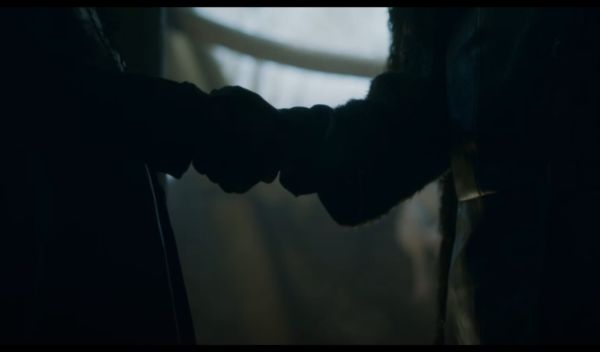
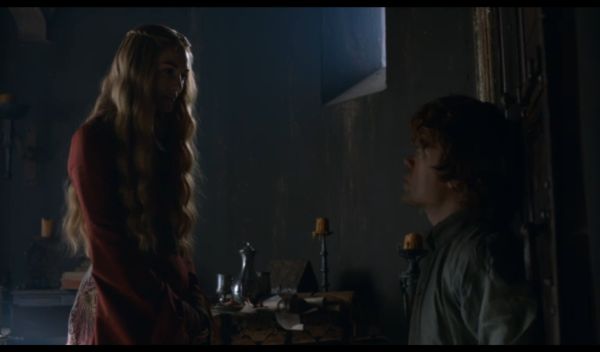

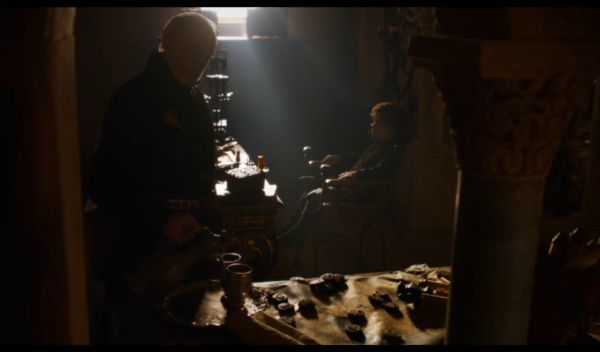
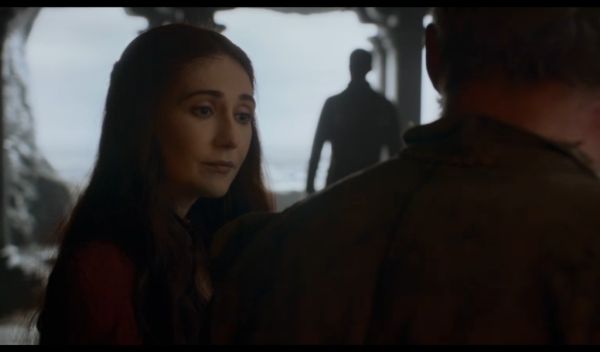





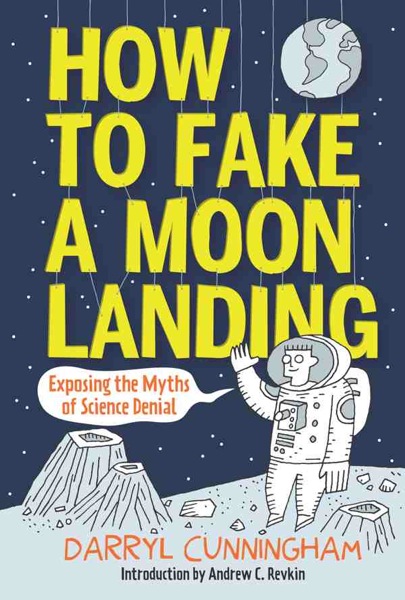


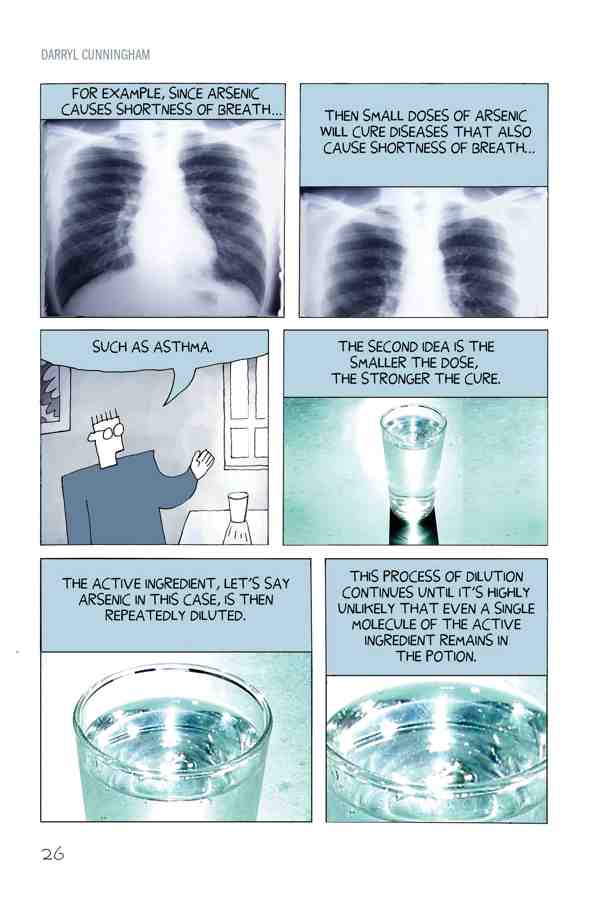

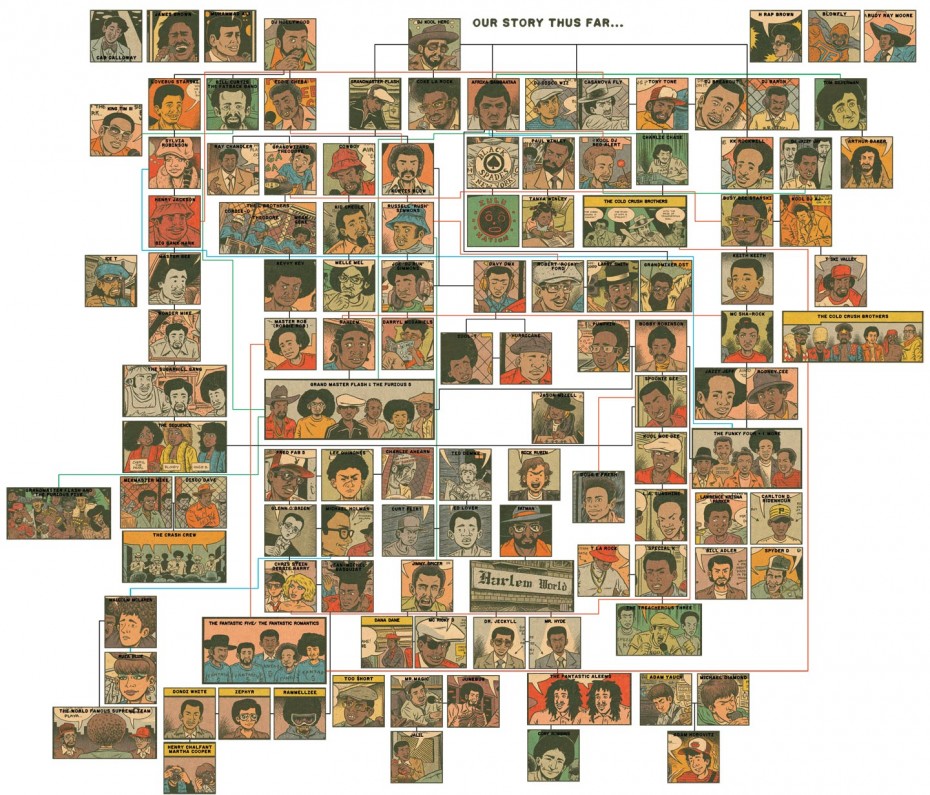








 Fathom Butterfly
Fathom Butterfly




 Flow Free
Flow Free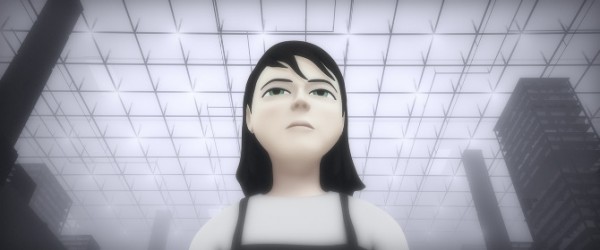

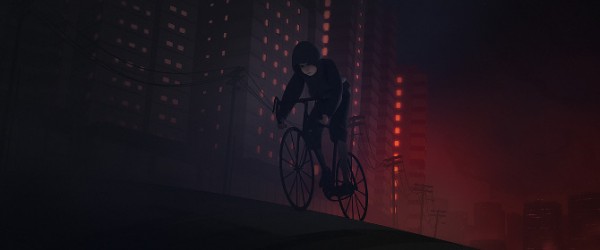
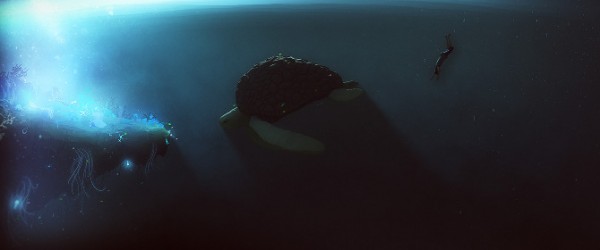
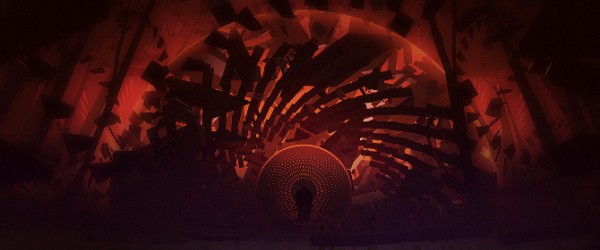




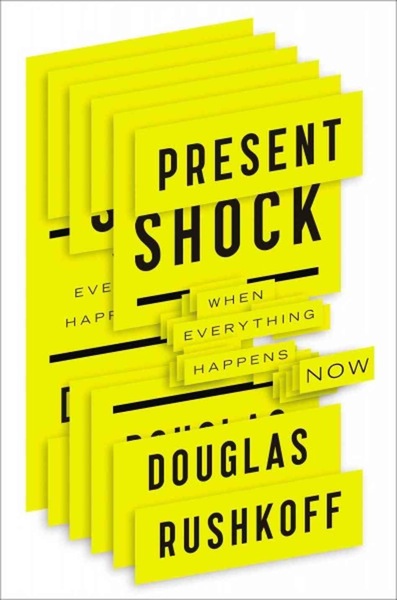



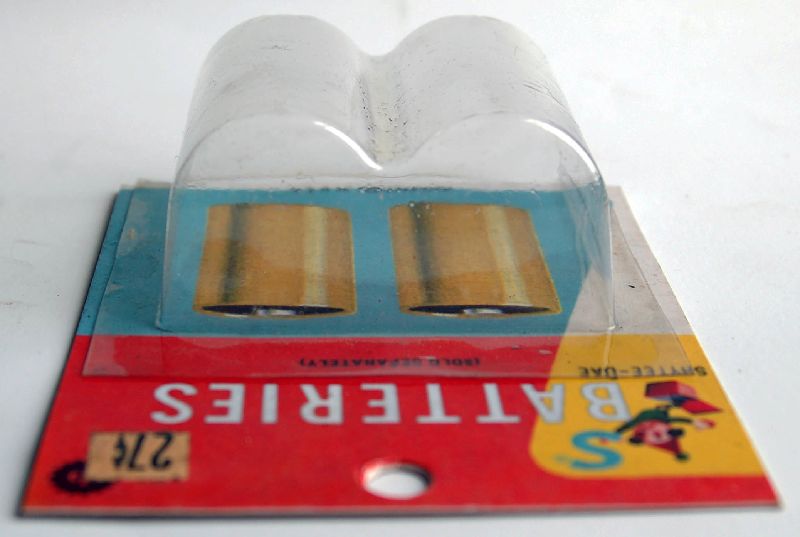



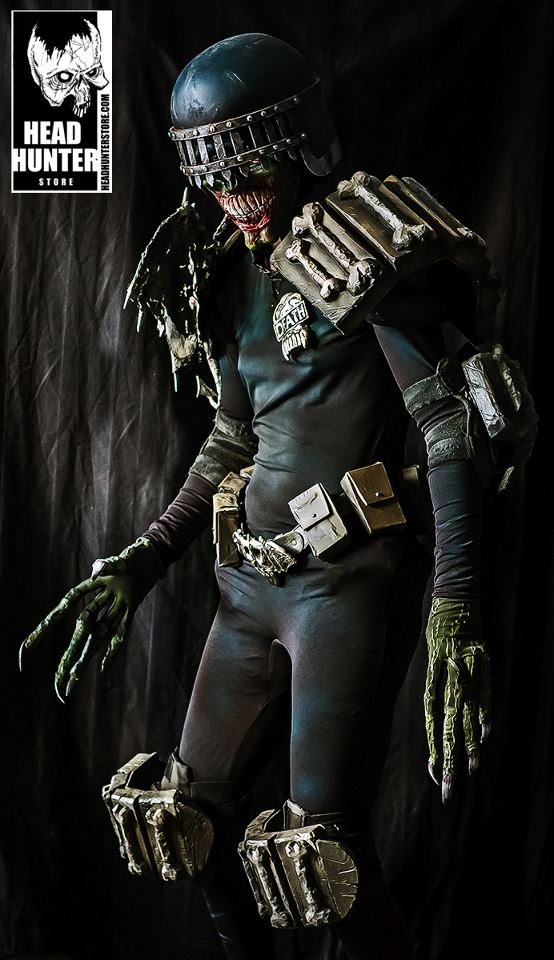 Finland's Head Hunter is selling a set of accessories that you can use to turn yourself (or a mannequin) into a terrifyingly credible Judge Death from 2000AD's Judge Dredd. It appears that the costume was made by DeviantArt member
Finland's Head Hunter is selling a set of accessories that you can use to turn yourself (or a mannequin) into a terrifyingly credible Judge Death from 2000AD's Judge Dredd. It appears that the costume was made by DeviantArt member 

